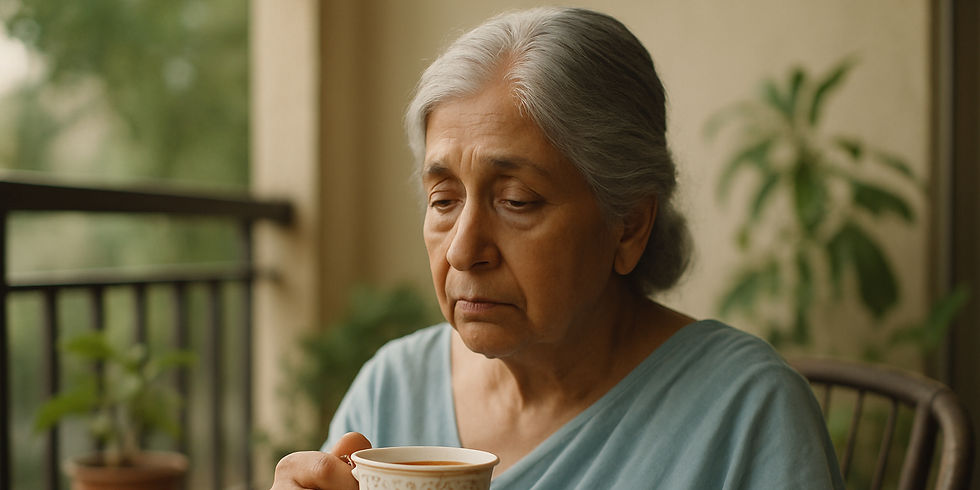Helping Children Understand Dementia: A Guide for Families
- saqlainm5
- Apr 28, 2025
- 3 min read
Updated: May 5, 2025
The holidays are a time of family, laughter, and cherished traditions. But when a loved one is living with dementia, these celebrations can also bring confusion and emotional challenges, especially for young children. At Home and Community Care Ltd. (HCCL), we believe in fostering understanding across generations, helping every family member navigate these changes with love and compassion.
Here’s how you can support your child in understanding a grandparent’s dementia while making the holidays meaningful for everyone.
Common Questions Children May Ask
It’s natural for kids to feel puzzled or concerned when they notice changes in a loved one’s behavior. You might hear:
“Dad, what’s wrong with Grandma? She’s acting strange.”
“Can I catch Old timers (Alzheimer’s)?”
“Granddad yelled at me. Why was he so mean?”
“Mommy, why doesn’t Papa remember who I am?”
“Will Nana ever get better?”
Answering these questions openly and simply is the first step to easing their worries.
How to Talk to Children About Dementia
1. Create a Safe Space for Questions
Encourage your child to share their feelings without fear of judgment. Adapt your explanations to their age and maturity level. Reassure them that it's okay to feel sad, upset, or confused. Every feeling is valid.
2. Offer a Simple and Honest Explanation
Let your child know that dementia is an illness that sometimes affects older adults, and it isn’t contagious. You might say:
“Nana has an illness that makes it hard for her to remember things. Even if she forgets your name, she still loves you just as much.”
3. Use Stories and Resources
Children’s books can be powerful tools for understanding complex topics like dementia. Look for age-appropriate stories that gently explain memory loss and changes in behavior. Your local library or online bookstores are great places to start.
4. Respect Their Feelings and Pace
Some children may find it difficult to visit a grandparent who has changed. That’s okay. Don’t force interactions. Instead, offer them options, shorter visits or activities they can do together without pressure.
Preparing for the Holidays: Making it Special
Small steps can make a big difference. Here are a few holiday activities to help children connect meaningfully with their grandparent:
🎵 Share Music – Singing familiar holiday songs can trigger positive memories.📖 Read Together – Recite holiday stories like "’Twas the Night Before Christmas” to spark joy.🎨 Create Crafts – Color festive pictures or make simple decorations to brighten up their grandparent’s room.🎲 Play Easy Games – Simple board games or card games offer fun, low-pressure ways to interact.🎥 Enjoy Cozy Moments – Watch classic holiday cartoons together, complete with hot chocolate and a warm blanket.
On the Day of the Celebration
Family gatherings can be overwhelming for someone with dementia. Here are a few thoughtful touches:
Use nametags: Large-font nametags can help loved ones recognize family members more easily.
Create a quiet space: Set aside a room where the grandparent can rest if needed.
Encourage physical affection: Hugs, holding hands, or sitting close by can offer comfort and connection without needing many words.
Facilitate one-on-one time: Short, meaningful visits with grandchildren can be very special and less tiring than group activities.
Children often bring a vibrant, infectious energy, and sometimes a simple hug or a shared laugh can be the best medicine.
At HCCL, We Believe in Connection
At HCCL, we understand that dementia affects not just individuals, but entire families. We’re here to support you in making every moment count, whether through professional caregiving services, therapy, or simply offering advice on how to keep those bonds of love strong.
This holiday season, let's focus on what matters most: togetherness, understanding, and compassion.
🌟 Home and Community Care Ltd. — Caring for Families, Creating Moments. 🌟






Comments